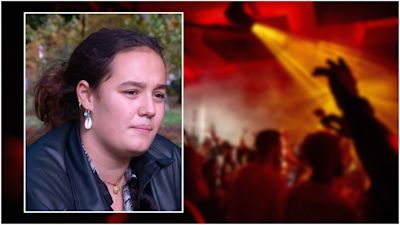North West students boycott bars and nightclubs amid sharp rise in spiking

Video report by Tasha Kacheri.
Students across the North West are taking part in a boycott of bars and night clubs in response to reports of a rise in drink spiking across the country.
The #GirlsNightIn event will take place in Liverpool on Tuesday 26 October and Manchester on Wednesday 27 October to coincide with a nationwide campaign.
It comes after almost 200 drug spikings - some involving needles - have been reported to police across the UK over the last two months.
Incidents have alleged to have taken place in Preston, Liverpool and Manchester, with one woman claiming she was 'unable to speak clearly or stand' after her drink was reportedly tampered with.
"The idea of thinking that someone saw you and thought 'that's the perfect person I'm going to try and drug'" - Emily was spiked on a night out in Manchester three weeks ago.
Emily is just one of a string of young women who reported having their drinks spiked or being spiked by injection in clubs across the North West.
Three weeks ago she was with her friends in a club in Manchester when she noticed that her glass of water 'tasted like bleach'.
After she realised the water was also fizzing she, along with her friend, alerted the bar staff who called emergency services.
She says it is become a normal occurrence among her friends and will be boycotting nightclubs in protest on Wednesday.
Serena Jemmett, a university student and advocate for women's safety, is calling for more action to be taken.
Serena set up a campaign called Resist Rape Culture which aims to tackle sexual violence and rape culture on the University of Manchester campus. She is also one of the #GirlsNightIn protest organisers.
Speaking to ITV Granada Reports, she said she is 'terrified' after a rise in the number of people spiked on nights out.
She believes more needs to be done to make women feel safer when they are in clubs and bars and thinks a single night of boycotting is not enough to see change.
Serena explains why she concerned the boycott is not enough.
That's why alongside the protest they have listed a number of demands that they hope will be implemented after the boycott, including:
Nightclubs and bars to take responsibility for victims of spiking
Counseling services and a 24-hour helpline for for victims of spiking
Regular and free night buses
Medical staff to test for drugs if a patient thinks they've been spiked
Drug amnesty boxes at the nightclub and bar doors
Monthly reports on spiking from councils
Serena also says there is a lot of advice on how to avoid being spiked but she believes it should not be up to women to protect themselves.
Several university societies are backing the campaign on social media and encouraging their members to participate.
Sugarhouse, the student union club at Lancaster University, have vowed to stay closed on Wednesday as an act of solidarity with the movement.
A spokesperson from the bar said the welfare of its customers is their priority and that they fully support the aims of the campaign to 'highlight this topic and their calls for action.'
In a statement, Bev Hughes, the Deputy Mayor of Greater Manchester, said: "Nobody should be made to feel threatened, unsafe or intimidated and Greater Manchester Police works hard to keep people safe."
She added: "A hard-hitting campaign was being developed to challenge behaviours and attitudes and prevent sexual violence and harassment.'
Merseyside Police and Crime Commissioner says spiking will be taken seriously by the force.
The Night Time Economy Adviser for Greater Manchester, Sacha Lord, has offered to meet with the organisers of the Manchester protest.